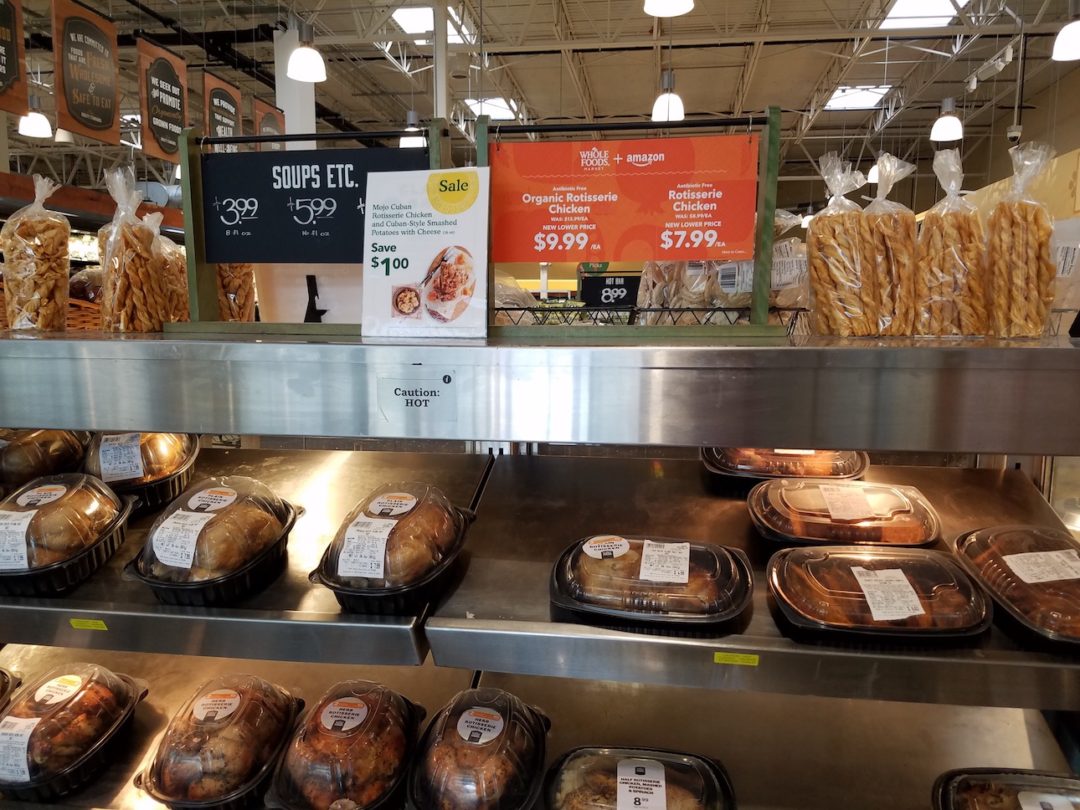This week, Stephenie Landry, vice president of Prime Now, Amazon Fresh and Amazon Restaurants, announced that customers of the $99-a-year Amazon Prime delivery service who live in Austin (where Whole Foods is headquartered), Cincinnati, Dallas and Virginia Beach can now order fresh produce, meat, seafood, flowers and other items that their local Whole Foods stores stock, as reported inFortune. The entire store inventory is not yet online, and deliveries are only available during local store hours.
At the same time, officials announced that Amazon Prime and Delivery Experience VP Greg Greeley would start spending more time at Whole Foods Market, according to CNBC. He will mainly focus on the Amazon Prime Whole Foods’ customer rewards program. Greeley has been with Amazon.com for 19 years. He assumed responsibility for Prime four years ago after holding executive roles in Amazon's finance and international businesses.
These are just the latest integrations since wereportedAmazon’s $13.7 billion takeover of the high-end grocer last summer. Amazon immediately slashed in-store prices and started selling some Whole Foods products on Amazon’s marketplace. At that time Amazon Prime customers were getting Whole Foods Market two-hour delivery promotions on Amazon.com.
Deliveries will not be on the scale of typical Amazon deliveries, where orders are filled by Amazon employees at enormous fulfillment centers. Instead, once a customer has placed an order, pickers — not necessarily Whole Foods employees — will actually go down store aisles and hand-pick order items.
The orders will then be given to Amazon Flex delivery drivers—contract drivers who, similar to Uber, drive their own cars but use Amazon’s routing app to make deliveries. These drivers also deliver items for Amazon, Prime Now, Amazon Fresh, and Amazon Restaurants.
This could be bad — and good — news for delivery services like Instacart. According to areport by Slate’s Economics writer Jordan Weissmann, the $3.4 billion startup pays a network of roving shoppers to pick up and deliver groceries to customers who order through an app. Up until now, Whole Foods has been an important source of business; in 2016, Instacart signed a five-year deal to become the chain’s exclusive delivery service for perishables. (Whole Foods also invested in the company, though it reportedly owns less than a 1% stake.) If Instacart has to compete with Amazon’s new delivery service, and its huge customer base - an estimated 60 to 90 million households subscribe to Prime — they could be at a huge disadvantage.
The good news, Weissmann says, is that maybe the pairing of Amazon and Whole Foods will make Instacart stronger, as more grocers compete harder in the online delivery space. In addition to Whole Foods, Instacart also partners with Wegman's, Aldi and Costco. And natural grocer Sprouts Farmers Market recentlyjoined rankswith the startup. And in recent months Walmart Inc. and Kroger Co. have bolstered their delivery offerings in the United States.
And there remain barriers to Amazon's plan. Says Jay Jacobowitz, president and founder of Retail Insights, "The test cities are mostly second or third tier metro areas, Dallas being the most densely populated, while the others, Cincinnati, Virginia Beach, are smaller, less densely populated.
"Overall, I am skeptical they can scale fresh product moving through so many hands; picked in store by someone who may or may not be a Whole Foods employee; delivered by a third-party contract driver. The risks I see include: delivering consistent, high quality fresh product, held at the right—variable— temperatures, on time and affordably, without incident. Beyond reliability, what happens when one of these contract workers does something inappropriate or out-of-bounds? It may always be a concierge-level service, but scale will remain elusive, in my view."
Related Stories:
2017 Person of the Year: Amazon.com's Jeff Bezos










